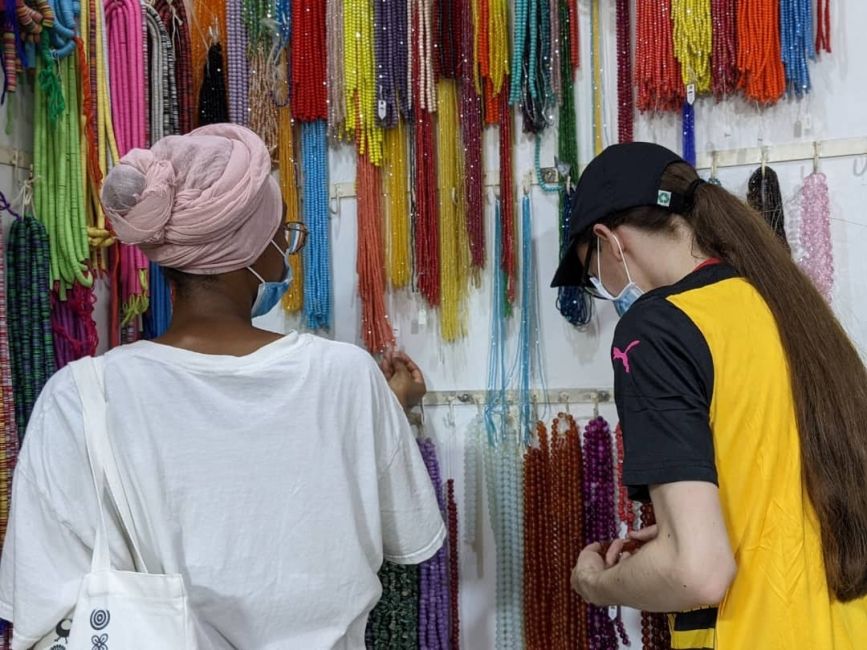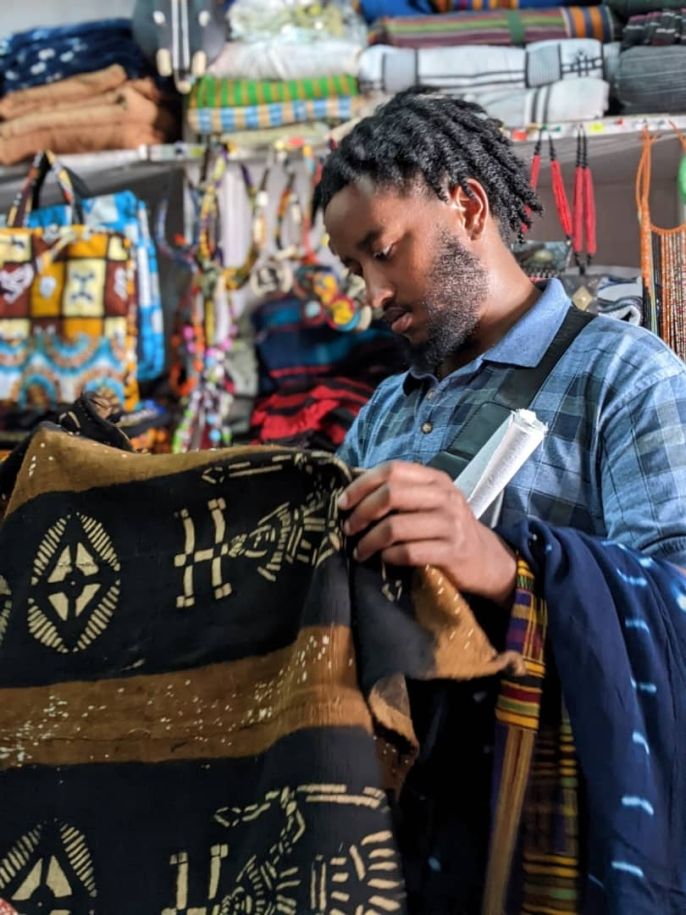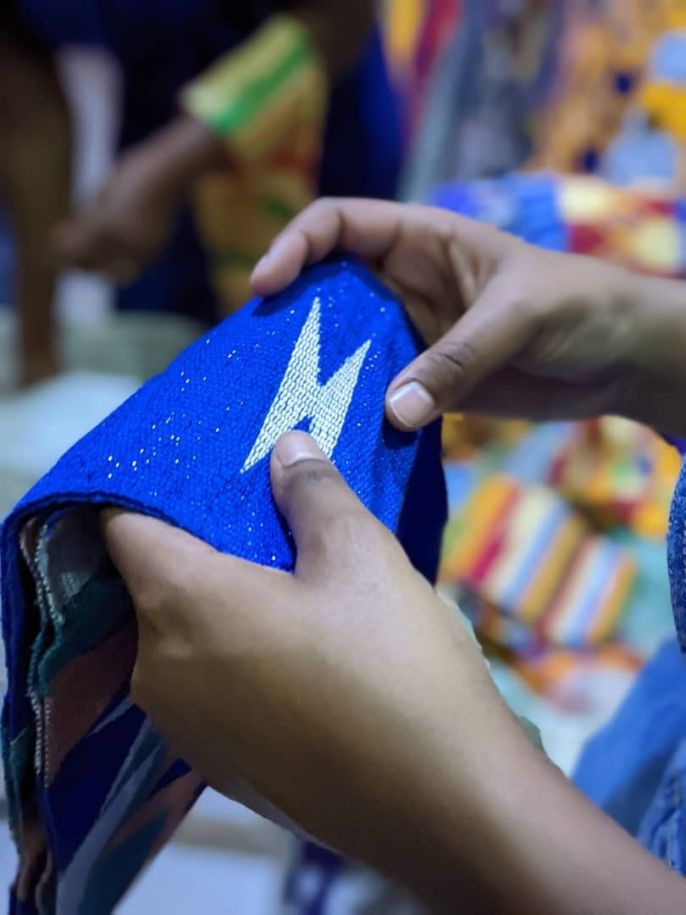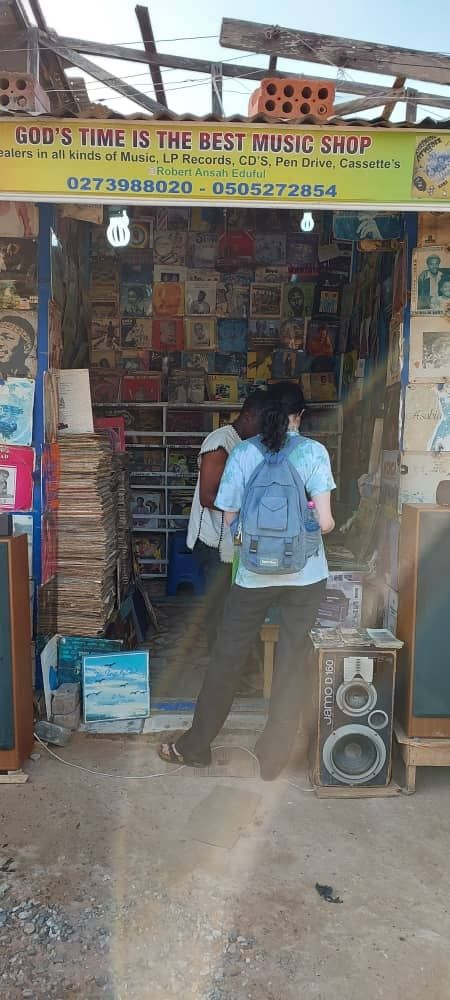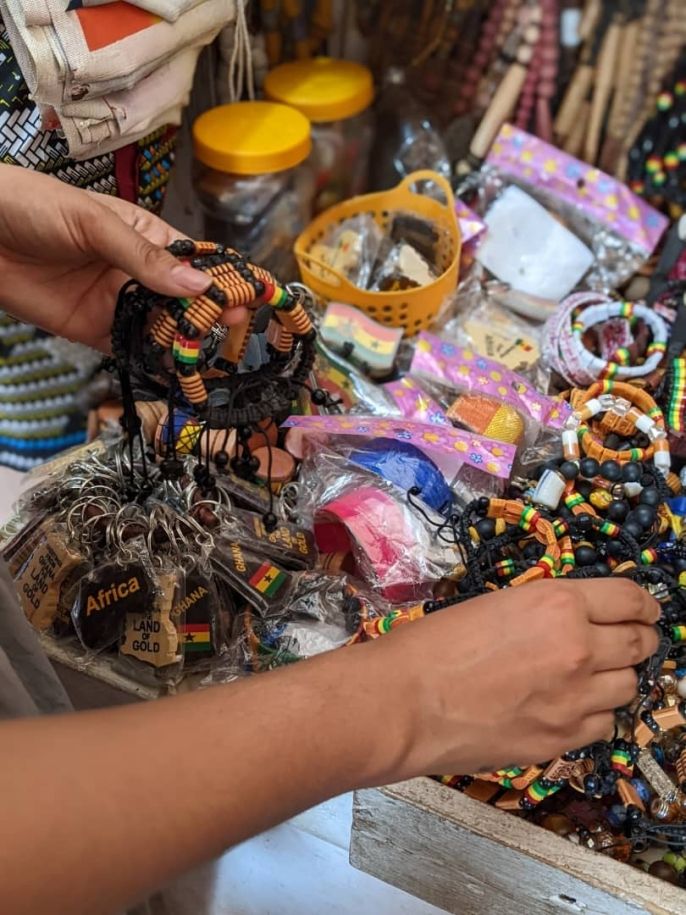A BARGAINING CULTURE
In many open air markets in West Africa, bargaining is a big part of the buying and selling culture and Ghana is no different. In Accra, the capital, you can bargain for fresh produce and spices at the Nima, Kaneshie, Makola, and Madina markets. You are also likely to find crafts; furniture; handwoven/crafted fabric like Kente, Dagawadze, Bogolanfini (mud cloth), batik/tie dye; jewellery; baskets and mats, shea and cocoa butter, among others at the various craft and art and culture centers/markets in the country. Sellers and service providers typically quote a price for an item, sometimes as much as two times more than the actual price, and expect buyers to beat it down to the actual price or close.
Often, they will persuade buyers by telling them about how bad the economy has gotten, all the trouble they went through to create or secure the items on sale and assure one that they are not out to cheat them or prevent them from buying. They are usually telling the truth. However, the price is still more than the actual market price and will occasionally be hinged on your outlook. Yes! Vendors profile. The trick is to not appear flashy. You also need to come to bargaining with your A* bargaining and persuasion game. The techniques vary and in most interactions, you would have to employ more than one. You could offer a little less than two-thirds of the quoted price, feign disinterest and pretend to walk away when the seller refuses to accept your price, bargain fully or partly in a language they understand, or appeal to their emotions and play the familial relationship card.
Bargaining for an already-made batik shirt for instance could go something like this:
You: Uncle/brother/sister [whatever applies], good day o. How are you? How is market today?
Seller: Oh my friend/some other relation, by the grace of [their chosen supreme being], I am fine. The market is slow but small small.
You: Oh sorry. I hope it gets better. How much for this shirt? It's beautiful. I like the color and the patterns.
Seller: Yes, it's beautiful. It will look good on you. You can have it for two hundred and seventy Ghana cedis.
You: Oh uncle, two seventy is a lot. Sorry, I don't have that much.
Seller: My sister, I have told you my price. Just say yours and let me see what I can do for you. I want you to buy it. It will look really good on you.
You: I only budgeted for sixty cedis.
Seller: Oh, sixty is not enough. These days prices have gone up. Wax is expensive. We spend a lot on electricity for ironing and sewing too. Even transportation is expensive. Bring two hundred and let me give it to you okay?
At this point they have probably taken it out of wherever it's hanging and are getting ready to bag it for you.
You: Sigh. I really want it but I can't do two hundred. [Feign disinterest and proceed to leave]
Seller: Oh, are you leaving? Don't go, please.
You, if you have hundred bring it. I really want you to buy it.
You: Hundred is still a lot, uncle. Mepawokyɛw (please). If I give you hundred, I can't buy the wax print scrunchies from the auntie over there.
Seller: I have some scrunchies too. You know what, you are my sister. I want you to take the shirt home. You, bring hundred and I will give you the shirt and two scrunchies. I have very colorful ones you can choose from. The hundred is small. My profit is small but you are my sister so I want to give you so that you can come again with your friends.
You: Hm... Okay.
And just like that, you have the item you wanted and little gifts at hundred plus Ghana cedis less than the price that was initially quoted. Some people can bargain lower than the hundred Ghana cedis that was reached in this scenario. While it can be difficult to tell what the true market value of certain items and services are, it is also important to be mindful so as not to underpay for goods and services. Sometimes vendors are in a hard place, are desperate and only looking for what will cater for them and their families for the day. Bargaining can be exhausting. It can also seem like a time-wasting venture; especially for buyers who are not used to it or are pressed for time. Not many people enjoy it. But it is also one of the sure ways to buy beautiful and functional jewellery, handmade fabric and clothing, crafts, fresh food and more outside malls and supermarkets! It affords you the opportunity to do more than buying: you get to establish relationships with vendors, trade jokes and laughs. It allows you to be human.
You haven't been to Ghana if you haven't bargained for an item or service by the time you are leaving. Have you visited a market in Ghana? What tricks did you use? Never been? Put that on your list of things to do when you study with us at CIEE Legon!
Related Posts

Eat, Drink, Explore: Legon
BEST FOOD TO EAT IN LEGON Fufu is the national dish of Ghana and a staple throughout much of West and Central Africa. While it might not look Instagram-worthy, fufu... keep reading

4 Best Countries to Study Abroad in Africa
Africa is the world’s second-largest and second-most-populous continent on the planet. The people, the landscapes, the animals, and more that make up this magnificent region are diverse and profound. If... keep reading
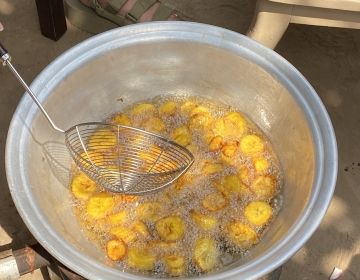
Exploring Ghanaian Cuisine!
When people asked what I was most excited about when preparing for my semester abroad I replied with "dance, music, and food!" In regards to food specifically, I was looking... keep reading
